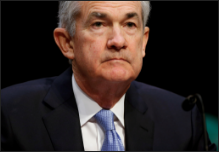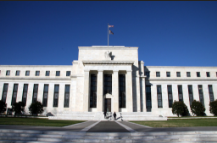The Fed says Expectations Cause Inflation
The largest employer of PhD economists is the Federal Reserve. Given that the Fed only does one thing, money creation, at least some of these economists must spend their time scribbling about theoretical nonsense like the “anchoring of inflation expectations.”
In the heads of the Fed heads, it’s the expectations of us pawns on the Fed’s chessboard which cause the general price level to increase or decrease. Through their Keynesian-colored glasses, in the view of Fed economists, the supply of money has nothing to do with price inflation. The problem is us.
Taeyoung Doh and Amy Oksol just turned out a paper for the Kansas City Fed entitled, “Has the Anchoring of Inflation Expectations Changed in the United States during the Past Decade?” Anchored means that people’s expectations of prices is consistent with what the monetary mandarins are engineering with their monetary policies. So, the Fed views us as rats in a cage, responding in a predictable and appropriate fashion to any stimulus they provide.
“Inflation expectations drifting away from the central bank’s implicit or explicit inflation targets can generate highly inflationary or disinflationary episodes,” write Doh and Oksol. The worker bees at the Fed have forgotten or never knew the real definition of inflation--the increase in the quantity of money and money substitutes--and believe the modern definition--the general rise in commodity prices and wage rates--which sends them looking for inflation in all the wrong places.
Doh and Oksol write,
Our analysis of three metrics of inflation expectations—their level, volatility, and persistence—suggests that the degree of anchoring deteriorated somewhat in late 2010, coinciding with the start of the second round of LSAPs [large-scale asset purchases], but has improved since then.
Anchoring has returned to the pre-crisis level, according to the authors.
“If investors anticipate the central bank will respond aggressively to inflationary shocks,” Doh and Oskol explain, “they may assume the effects of these shocks will dissipate sooner and set prices accordingly. As a result, actual inflation and inflation expectations will be less responsive to exogenous shocks.”
Of course it’s the Fed itself that creates shocks.
This isn’t a new way of thinking for the Fed. In 2011, Frank Shostak wrote on mises.org,
[Fed Chair Ben]Bernanke and other experts believe that it is possible to bring inflationary expectations to a state of equilibrium by means of transparent central-bank policies. In such a state of equilibrium, they argue, expectations are perfectly anchored or are not sensitive to changes in various economic data.
According to this way of thinking, once inflationary expectations are well anchored various price shocks such as sharp increases in oil or food prices are likely to be of a transitory nature. This means that over time price shocks are unlikely to have much effect on the rate of inflation.
Shostak makes the point that the Fed makes no mention of the money supply in their inflation discussions. He then wonders if an outside price shock could alter inflation expectations and thus increase the general price level.
Let us say that on account of a sudden sharp increase in the price of oil, people have formed higher inflation expectations. If the money stock remains unchanged, then no general increase in prices can take place, all other things being equal. All that we will have here is a situation where the prices of oil and energy-related goods go up and the prices of other goods and services go down.
Doh and Oskol cite the Japanese experience and caution policy makers to watch inflationary expectations carefully. The Fed had Japan on it’s mind when. “During the financial crisis of 2008, policymakers were concerned about the possibility of deflation and stagnation and took aggressive steps to avoid it.” Did it ever, more than quadrupling the Fed's balance sheet.
However, Shostak makes it clear,
Contrary to Bernanke and mainstream economists, it is changes in the money supply — not expectations of inflation — that underpin general rises in prices. Without support from the money supply, no general acceleration in price inflation can take place, regardless of inflation expectations.
In fact, various so-called price shocks tend to come mostly because of preceding increases in the amount of dollars generated by the Fed and the banking system.
The Fed looks at the “breakeven inflation rate” when determining inflation expectations. The wider the gap between Treasury yield and the yield on TIPS (Inflation protected securities) the higher the expectations. As the graph shows, the gap is growing.
So for all the central bank’s calculating and policy making, CNBC says, “Investors in financial assets like stocks and bonds are always worried about inflation, because it erodes the buying power of whatever money they make on those investments,” and, “The latest read on the consumer price index shows that it jumped 0.5 percent last month, surpassing economists' forecasts for a 0.3 percent increase.”
Thus, the economists at the Fed likely do not have the control they believe they have. F.A Hayek, in his 1974 Nobel Prize acceptance speech said, “If man is not to do more harm than good in his efforts to improve the social order, he will have to learn that in this, as in all other fields where essential complexity of an organized kind prevails, he cannot acquire the full knowledge which would make mastery of the events possible.”
Jerome Powell and other Fed bureaucrats, should heed Hayek’s words.
As we advance, we find more and more frequently that we can in fact ascertain only some but not all the particular circumstances which determine the outcome of a given process; and in consequence we are able to predict only some but not all the properties of the result we have to expect.
With the true money supply tightening, asset price inflation may come to a screeching halt.







